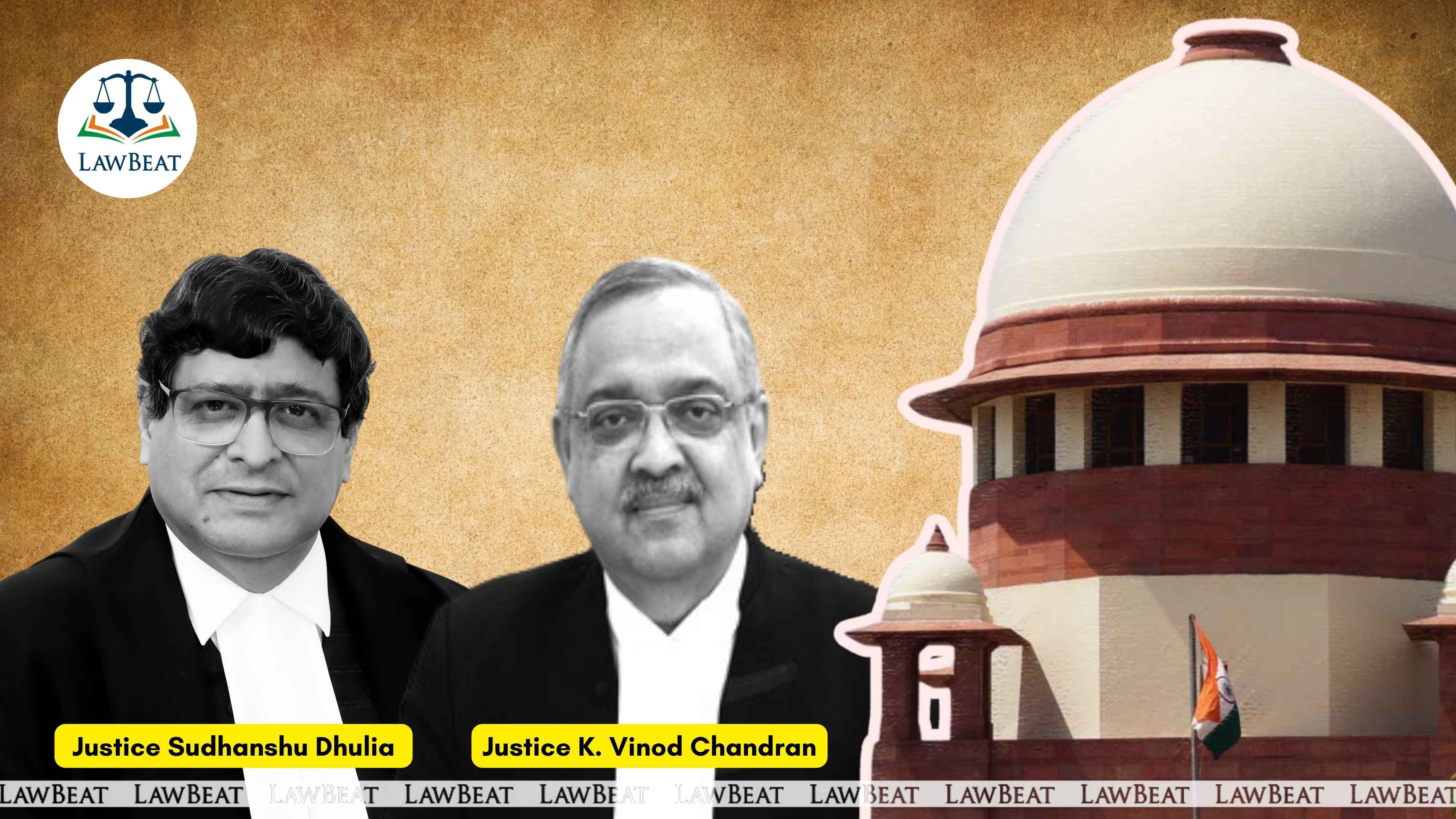SC rejects Insurance Company's claim of contributory negligence in accident case

Court said insurance company argued only on the question of contributory negligence and hence it would say nothing on the enhancement of the award amounts; which in any event, was proper
The Supreme Court has rejected a plea by an insurance company of contributory negligence to a biker who was killed in a road accident after being hit by a truck on the basis of a statement of the investigating officer and the truck driver against whom even a charge sheet was filed for rash and negligent driving.
"We are unable to countenance the said statements of the Investigating Officer, who was examined on behalf of the respondent before the Claims Tribunal," a bench of Justices Sudhanshu Dhulia and K Vinod Chandran said.
The wife and mother of the deceased filed the claim petition, in which, the Tribunal while making the award found contributory negligence on the deceased. The liability of the award amounts on the insurer of the truck was apportioned at 50%. The claimants and the insurer filed appeals before the High Court.
The High Court found negligence solely on the part of the driver of the truck and enhanced the award amounts, against which the instant petition was filed by the insurance company.
The insurance company argued that this was a unique case in which the driver of the alleged offending vehicle mounted the box and spoke of the accident. The deposition indicated negligence on the bike rider. This is amply supported by the officer who investigated the crime. The interested testimony of the eyewitness, who was admitted to be the friend of the deceased, should be eschewed considering the overwhelming evidence of negligence on the part of the bike rider, it said.
The truck driver contended there was no collision at all and the case was filed against him only because he was driving a bigger vehicle. However, the evidence of Investigating Officer was contrary, to the extent of admitting the collision between the bike and the truck. His evidence was that there was contributory negligence on both the drivers, on an assessment of the lie of the vehicles at the accident site.
"But, in cross-examination he admitted that the position of the motorcycle could have been changed by the time he reached the spot. It is also very pertinent that the deposition of the IO about the negligence of bike driver conflicted with the charge sheet filed by him, against the truck driver. His explanation was also that the charge sheet was filed against the truck driver since the motor-cycle driver had died in the accident," the bench noted.
The evidence of the eyewitness was that he was accompanying the deceased in another bike. They were proceeding to a common destination on two bikes, following the bike of the deceased. He specifically spoke of both the bikes being driven at normal speed when the offending truck came through the wrong side and hit the bike of the deceased.
He has also deposed that the truck was driven in a rash and negligent manner. After the accident the truck was not stopped. It was taken to a distance and the driver fled from the spot of the accident. The driver has claimed that he had fled only because people had gathered to beat him. His deposition was also that he had, after fleeing from the spot of the accident, gone to the police station to report the accident. The accident, however, was reported to the police by the eyewitness, the court noted.
"We are unable to place any reliance on the interested testimony of the truck driver and the statements made by the investigating officer, contrary to his own findings in the investigation, the bench said. In the totality of the circumstances as revealed from the evidence on record, we are of the opinion that the judgment of the High Court fixing the entire liability on the offending vehicle, its owner and driver is perfectly in order," the bench said.
The petitioner-insurer, who has insured the vehicle is bound to indemnify the owner of the vehicle who has the vicarious liability as against the negligence of his employee- the driver, the bench said.
"The counsel for the petitioner argued only on the question of contributory negligence and hence we say nothing on the enhancement of the award amounts; which in any event, we find to be proper," the bench said.
The court dismissed the special leave petition and directed that the amounts deposited in court should be disbursed along with interest to the claimants, if not already done and the balance amounts, if any, with interest shall also be paid through RTGS transfer, on the claimants furnishing their account details, within a period of one month from the date of this order.
Case Title: Reliance General Insurance Company v. Swati Sharma
